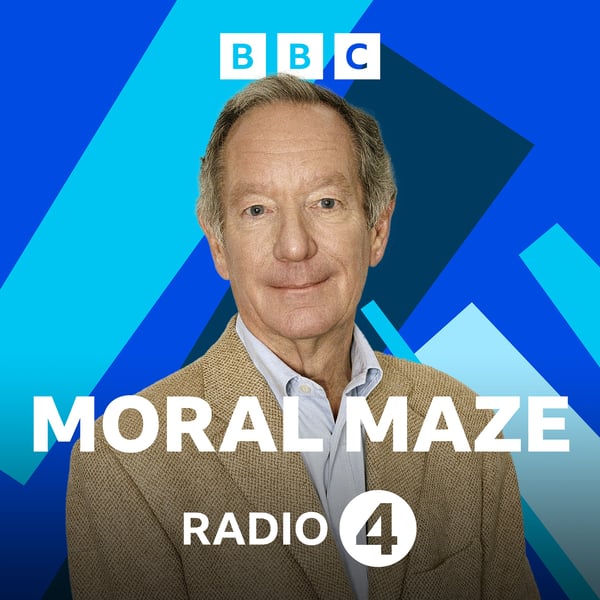Words as Weapons
Moral Maze
BBC
4.5 • 609 Ratings
🗓️ 1 November 2018
⏱️ 43 minutes
🧾️ Download transcript
Summary
In a Pittsburgh synagogue at the weekend, history’s oldest hatred delivered yet another tragedy. Eleven people were killed as worshippers were gunned down during Sabbath prayers. We know that the attacker is an anti-Semite, but we do not know whether he was induced to kill, as some commentators have suggested, by the current political climate. Only days earlier a very vocal supporter of Donald Trump was arrested for allegedly posting bombs to 14 of the president’s enemies. Part of the presidential response was to blame the mainstream media for the ‘bad and hateful’ atmosphere and describe them as ‘the true enemy of the people’. In London, meanwhile, Theresa May was asking politicians to be ‘careful about language’ after anonymous MPs spoke of ‘hanging’ and ‘stabbing’ her. When does ugly discourse, encouraged by anonymity and magnified by online sharing, begin to have violent consequences? Does giving a platform to hateful views ‘normalise’ hatred? If there is a direct link between verbal and physical violence, are we entitled to police the language others use? At a deeper level, can a verbal assault itself be an act of violence? Some argue words are weapons which should be used as carefully as any other weapon. Others believe language itself cannot be violent, and history has shown how curtailing it may itself be the first step towards dehumanisation and mass killing. How can we achieve civility and a public discourse that won’t end in bloodshed, while at the same time protecting freedom of speech?
Producer: Dan Tierney
Transcript
Click on a timestamp to play from that location
| 0:00.0 | You're listening to a program from BBC Radio 4. |
| 0:03.9 | Good evening. Antisemitism has returned to haunt us on the wings of the internet. |
| 0:08.6 | Screw your optics, I'm going in, was the last of a series of anti-Jewish messages posted on social media under the name of Robert Bowers. |
| 0:17.0 | Shortly afterwards, the American police say, he walked into a Pittsburgh synagogue at the weekend and shot dead 11 Jews at prayer, the worst anti-Semitic incident in the country's history. |
| 0:27.7 | Hatred and rage is all over, social media. Cesar Sayok Jr., the pizza delivery man and would-be pipe bomb assassin of leading liberal figures in America, turned out this week to have a Twitter account steeped in far-right ideology |
| 0:40.9 | and littered with threatening messages. |
| 0:43.3 | It suffuses public and political discourse, |
| 0:46.2 | even our Prime Minister's so-called colleagues, talk of hanging and stabbing her. |
| 0:51.0 | If there's a causal link between verbal and actual violence, are we entitled, required even, to police the language that others use? |
| 0:59.8 | Does giving a platform to views regarded as hateful normalise hatred itself? |
| 1:05.6 | Can words themselves be weapons, even independent of the consequence of uttering them? |
| 1:10.9 | Or is this just an excuse for squashing views we don't agree with? |
| 1:14.4 | A prerequisite for totalitarianism and tyranny. |
| 1:18.3 | How do we balance safety and civility with freedom of speech? |
| 1:21.2 | That's our moral maze tonight. |
| 1:22.3 | Our panel, the former Conservative Cabinet Minister Michael Portillo, |
| 1:25.5 | Claire Fox from the Academy of Ideas, |
| 1:27.4 | Anne McKelvoy, senior editor at The Economist, and Mona Siddiqui, Professor of Islam. Conservative Cabinet Minister Michael Portillo, Claire Fox from the Academy of Ideas, |
| 1:29.5 | Anne McElvoy, Senior Editor at The Economist, |
| 1:34.8 | and Mona Siddiqui, Professor of Islamic and Inter-Religious Studies at Edinburgh University. |
| 1:43.4 | Claire Fox, at a rough guess, a libertarian like you, smells censorship and suppression in the air with this, don't you? |
| 1:48.5 | I do, but I mean, I'm no great fan of the contemporary tone of public discourse. |
... |
Please login to see the full transcript.
Disclaimer: The podcast and artwork embedded on this page are from BBC, and are the property of its owner and not affiliated with or endorsed by Tapesearch.
Generated transcripts are the property of BBC and are distributed freely under the Fair Use doctrine. Transcripts generated by Tapesearch are not guaranteed to be accurate.
Copyright © Tapesearch 2025.

